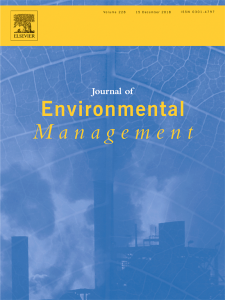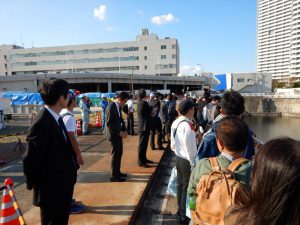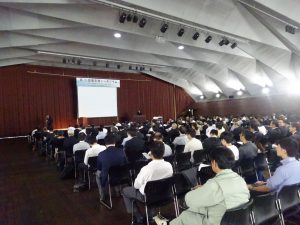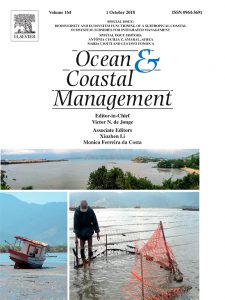October 2018
An investigation of coastal vulnerability and internal consistency of local perceptions under climate change risk in the southwest part of Bangladesh
Bangladesh is one of the most disaster-prone countries, while climate change and its associated hazards such as cyclonic storm surges, inundation, and salinity threats force disruption of coastal communities. Gradually, coastal communities are going to lose their existing livelihoods owing to the regular interruptions of coastal hazards such as high salinity problems in soil and water. In this situation, it is important to secure the coastal lifestyle by investigating the social vulnerabilities and possible policy practices along the coastal belt communities of Bangladesh. Publication Rakib, M. A., Sasaki, J., Palc, S., Md. Asif Newazd, Md. Bodrud-Dozae, Mohammad Amir Hossain Bhuiyan. An investigation of coastal vulnerability and internal consistency of local […]
Tokyo Bay Festa 2018
On October 20th and 21st, Tokyo Bay Festa is being held in Yokohama. Our project team for creation of habitat under the Public-Private Cooperation Forum for Tokyo-Bay Restoration exhibit shellfishes in Tokyo Bay, quiz on Tokyo Bay, and panels showing the PT activities.
19th Tokyo Bay Symposium
The 19th Tokyo Bay Symposium (sponsored by National Research Institute for Land and Infrastructure Management, Ministry of Land, Infrastructure, Transport and Tourism) was held at Osanbashi Bridge Hall in Yokohama Port on October 18 (Thu), 2018. Professor Sasaki gave a lecture entitled "Possibility of Blue Carbon and its Social Implementation", and Mr. Endo, Ph.D. candidate made a poster presentation entitled "Field survey on upwelling of hypoxic water in Sanbanze Shallow Water Area at the head of Tokyo Bay". It was a great success with about 300 participants.
Perspectives on measures for adaptively managed erosive shorelines: A case study in Sri Lanka
Beach erosion is a treat to both properties and livelihoods of coastal communities. When the mechanisms of beach erosion are unclear, erosive shorelines are adaptively managed. The success of adaptive management depends on the interpretation of the archived data of each feedback loops. Archived data are limited or difficult to access in developing countries due to lack of budget, technical expertise, institutional coordination etc. Figure 1: Photos of shore next to a tourist hotel after beach nourishment in 2016 December (Photos were taken during my recent field visits) Historical changes in the shoreline and management of Marawila Beach, Sri Lanka, from 1980 to 2017 Coastal management in Sri Lanka is […]




